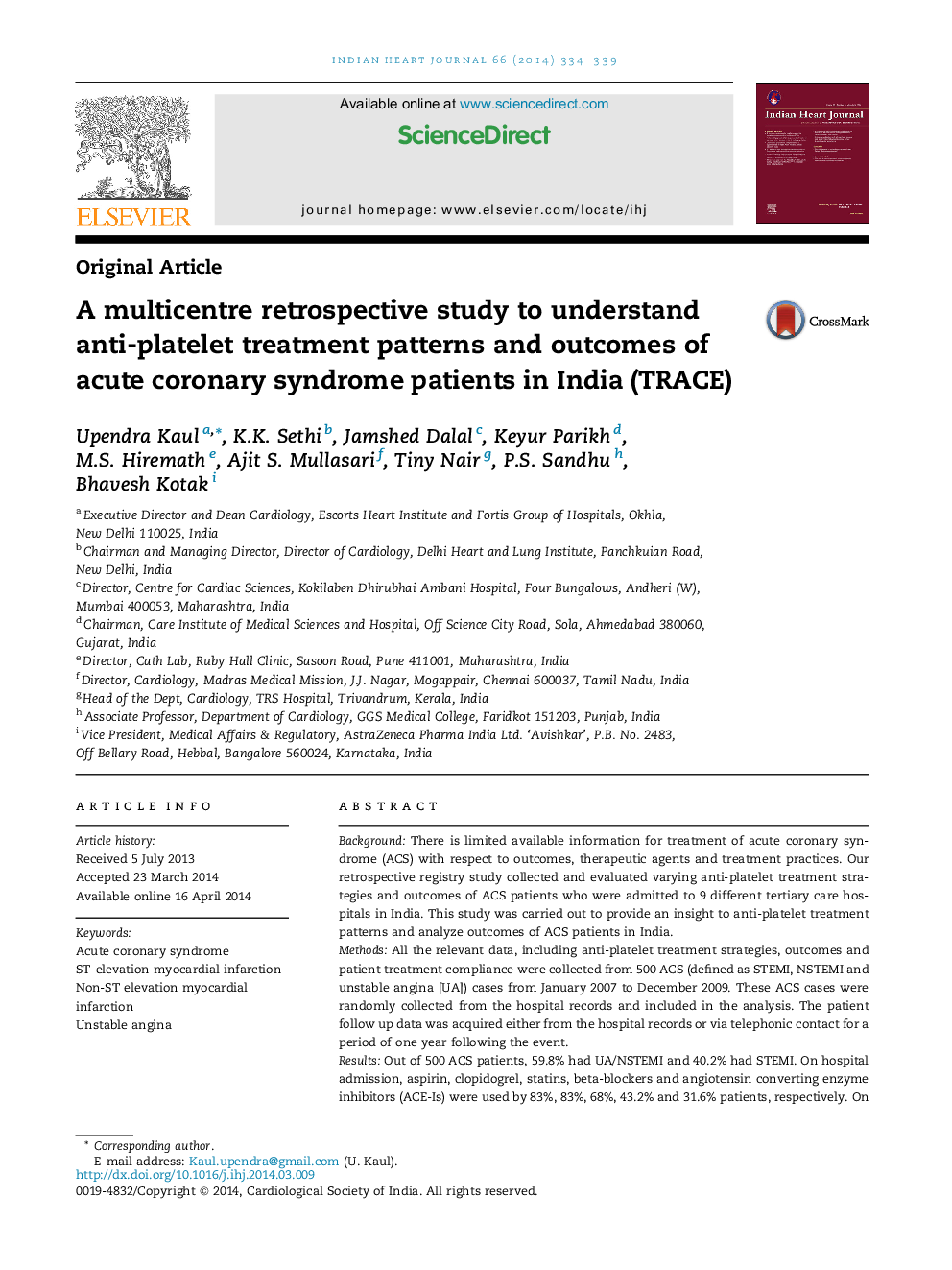| Article ID | Journal | Published Year | Pages | File Type |
|---|---|---|---|---|
| 2927884 | Indian Heart Journal | 2014 | 6 Pages |
BackgroundThere is limited available information for treatment of acute coronary syndrome (ACS) with respect to outcomes, therapeutic agents and treatment practices. Our retrospective registry study collected and evaluated varying anti-platelet treatment strategies and outcomes of ACS patients who were admitted to 9 different tertiary care hospitals in India. This study was carried out to provide an insight to anti-platelet treatment patterns and analyze outcomes of ACS patients in India.MethodsAll the relevant data, including anti-platelet treatment strategies, outcomes and patient treatment compliance were collected from 500 ACS (defined as STEMI, NSTEMI and unstable angina [UA]) cases from January 2007 to December 2009. These ACS cases were randomly collected from the hospital records and included in the analysis. The patient follow up data was acquired either from the hospital records or via telephonic contact for a period of one year following the event.ResultsOut of 500 ACS patients, 59.8% had UA/NSTEMI and 40.2% had STEMI. On hospital admission, aspirin, clopidogrel, statins, beta-blockers and angiotensin converting enzyme inhibitors (ACE-Is) were used by 83%, 83%, 68%, 43.2% and 31.6% patients, respectively. On discharge, aspirin, clopidogrel, statins and beta-blockers were used by 90.2%, 88%, 80.6%, and 59% patients, respectively. The average patient compliance to statins, clopidogrel and aspirin was recorded as 74.28%, 69.7% and 68.66%, respectively during discharge and follow-up visits. Greater than 50% of ACS patients after discharge were lost to follow-up and as a result there was significant drop in the number of clinical events reported.ConclusionThis pilot study conducted in tertiary care centers in India showed that patients with ACS were more often diagnosed with UA/NSTEMI as compared to STEMI and reported maximum compliance to statins, clopidogrel and aspirin after discharge over 1 year follow-up. More ACS patients were lost to follow up that resulted in low reporting of clinical outcomes, following discharge upto 1 year.
